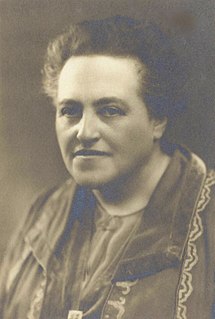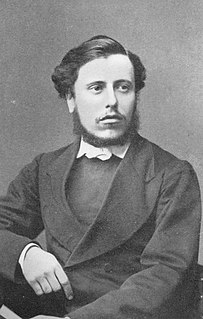A Quote by Thomas Jefferson
Of publishing a book on religion, my dear sir, I never had an idea. I should as soon think of writing for the reformation of Bedlam, as of the world of religious sects. Of these there must be, at least, ten thousand, every individual of every one of which believes all wrong but his own.
Related Quotes
You all know that certain things are necessary to make a religion. First of all, there is the book. The power of the book is simply marvellous! Whatever it be, the book is the centre round which human allegiance gathers. Not one religion is living today but has a book. With all its rationalism and tall talk, humanity still clings to the books. In your country every attempt to start a religion without a book has failed. In India sects rise with great success, but within a few years they die down, because there is no book behind them. So in every other country.
Every one of the numberless religions and religious sects views the Deity after its own fashion; and, fathering on the unknown its own speculations, it enforces these purely human outgrowths of overheated imagination on the ignorant masses, and calls them "revelation." As the dogmas of every religion and sect often differ radically, they cannot be true. And if untrue, what are they?
Write all the time. I believe in writing every day, at least a thousand words a day. We have a strange idea about writing: that it can be done, and done well, without a great deal of effort. Dancers practice every day, musicians practice every day, even when they are at the peak of their careers – especially then. Somehow, we don’t take writing as seriously. But writing – writing wonderfully – takes just as much dedication.
The religious conflicts of the Reformation era were never simply and only about religion, because religion during this era as in the Middle Ages that preceded it, informed and was meant to inform every domain of life. Violence involving religion and touching other areas of life took many forms: from the Protestant destruction of Catholic religious art and objects in iconoclasm, to Catholic executions of Protestants who refused to renounce their views, to major destructive conflicts such as the French Wars of Religion and the Thirty Years' War.
The true value of the Christian religion rests, not upon speculative views of the Creator, which must necessarily be different in each individual, according to the extent of the knowledge of the finite being, who employs his own feeble powers in contemplating the infinite: but it rests upon those doctrines of kindness and benevolence which that religion claims and enforces, not merely in favour of man himself but of every creature susceptible of pain or of happiness.
Mr. Browborough, whose life had not been passed in any strict obedience to the Ten Commandments, and whose religious observances had not hitherto interfered with either the pleasures or the duties of his life, repeated at every meeting which he attended, and almost to every elector whom he canvassed, the great Shibboleth which he had now adopted "The prosperity of England depends on the Church of her people.
Of all the animosities which have existed among mankind, those which are caused by a difference of sentiments in religion appear to be the most inveterate and distressing, and ought to be deprecated. I was in hopes that the enlightened and liberal policy, which has marked the present age, would at least have reconciled Christians of every denomination so far that we should never again see the religious disputes carried to such a pitch as to endanger the peace of society.
Every individual man has a bias which he must obey, and...it is only as he feels and obeys this that he rightly develops and attains his legitimate power in the world. It is his magnetic needle, which points always in one direction to his proper path.... He is never happy nor strong until he finds it, keeps it.
There can never be any real opposition between religion and science; for the one is the complement of the other. Every serious and reflective person realizes, I think, that the religious element in his nature must be recognized and cultivated if all the powers of the human soul are to act together in perfect balance and harmony. And indeed it was not by accident that the greatest thinkers of all ages were deeply religious souls

































